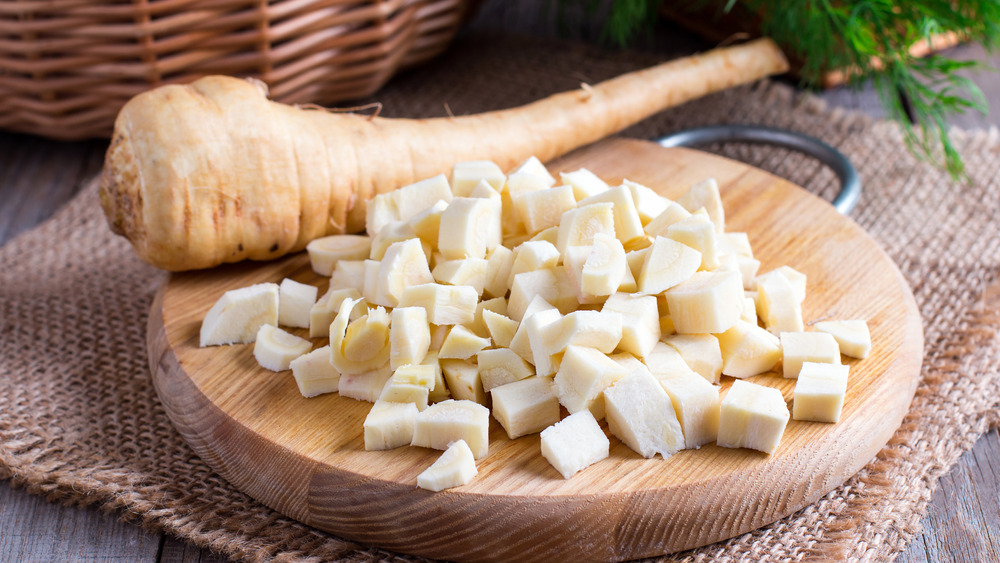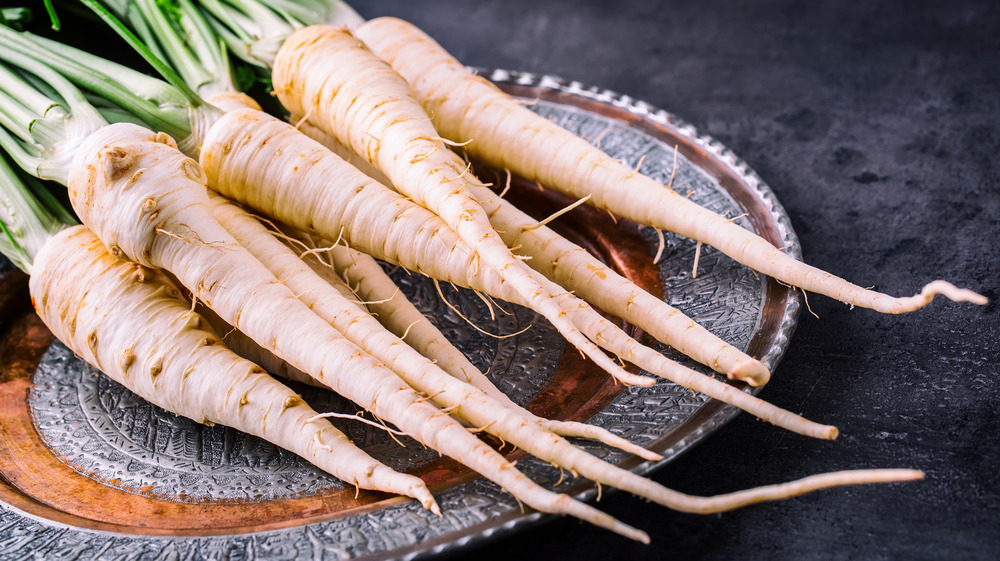Parsnips (Pastinaca sativa) are a delicious and nutritious root vegetable often overlooked in favor of carrots or potatoes. With their sweet, nutty flavor and impressive nutrient profile, parsnips offer numerous health benefits.
In this post, we’ll explore why you should consider adding them to your diet, how to enjoy them, and who should consume them with caution.
Health Benefits of Parsnip
1. Rich in Essential Nutrients
Parsnips are packed with vitamins and minerals, including:
- Vitamin C – Boosts immunity and skin health.
- Folate (B9) – Supports cell growth and is crucial for pregnant women.
- Potassium – Helps regulate blood pressure and heart function.
- Fiber – Promotes digestive health and keeps you full longer.
2. Supports Digestive Health
Thanks to their high fiber content, parsnips aid digestion, prevent constipation, and support a healthy gut microbiome.
3. Boosts Heart Health
The potassium in parsnips helps manage blood pressure, while their fiber content can lower cholesterol levels, reducing the risk of heart disease.
4. Antioxidant Properties
Parsnips contain antioxidants like falcarinol and polyacetylenes, which may help reduce inflammation and protect against chronic diseases.
5. Low-Calorie and Weight-Friendly
With only about 75 calories per 100 grams, parsnips are a great addition to a weight-conscious diet while still providing satiety.
How to Enjoy Parsnips
Parsnips are versatile and can be prepared in many ways:
- Roasted – Toss with olive oil, salt, and herbs for a caramelized side dish.
- Mashed – Blend with potatoes or cauliflower for a creamy texture.
- Soups & Stews – Adds a sweet, earthy flavor to winter dishes.
- Raw (in moderation) – Shred into salads for a crunchy element.
Potential Contraindications & Precautions
While parsnips are generally safe, some people should consume them with caution:
1. Allergies
Some individuals may be allergic to parsnips, especially those sensitive to birch pollen or other Apiaceae family vegetables (carrots, celery).
2. High in Natural Sugars
Although their sugars are natural, parsnips have a higher glycemic index than some vegetables, so diabetics should monitor portions.
3. Furocoumarins (Photosensitivity Risk)
Wild parsnips contain compounds that can cause skin irritation when exposed to sunlight. Cultivated varieties have lower levels, but peeling and cooking reduce risks.
4. Kidney Stones
Parsnips contain oxalates, which may contribute to kidney stones in susceptible individuals.

Parsnips are a nutrient-dense, flavorful vegetable that can enhance both your meals and your health. Whether roasted, mashed, or blended into soups, they offer a wealth of benefits—just be mindful of potential allergies or dietary restrictions.
Have you tried parsnips? What’s your favorite way to enjoy them?
Share in the comments below!

